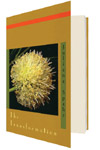Not a poem, not a novel, and only fitfully a memoir, Juliana Spahr’s serious narrative grows from a dilemma that informs the lives of, say, a third of the poets I know. Here’s the dilemma, posed as a posse of queries: Should your art do something political? Should it confront the privilege that allows you to devote time and energy to it? If you prefer difficult, avant-garde styles, why do you bother to claim that your art is political, since it won’t change the polis much if at all? Should it bother you if the writers you think about most are from the American mainland, or rich, or white? If you often notice an unjust system—capitalism, say, or patriarchy, or any system in which pale people hold more power than dark-skinned ones—must you work against that system in art? in private life? all the time?
Spahr has circled such questions since she started writing, but they took new, strange form for her when she and a pair of her paramours moved to Hawaii, where she began teaching at the university and they lived as a trio. What could the trio say—what did they feel permitted to say—about an island where they had not grown up, where
they represented a point of view less obviously avant-garde than obviously from-elsewhere, alien, privileged? Was it OK to write about flora and fauna, or about some Hawaiians’ political views—anticolonialist, antiracist, and at times quite anti-gay? When Spahr and her partners moved to New York, just in time for 9/11, how had Hawaii changed them? What did 9/11 do to their domestic arrangements, their habits, their art?
If you’re sick of such questions, you won’t like The Transformation. If you find them, or their cousins, inescapable, you may find it hard to put down, not because it offers answers but because its forcefully self-alienated, restrained, and analytical style seems to find the right angle from which to ask them. Spahr uses third-person plural (they and them) wherever most memoirists would use I, me, or we; she uses careful formulas in place of almost every proper noun (e.g., “with genealogical ties to the island from before the whaling ships arrived” again and again in place of “native Hawaiian”). Her crisp prose crystallizes the helplessness of our relation to social categories: this is how it feels to be a student, a teacher, a white person, a citizen, and to realize that for some people (nonstudents, noncitizens) you are, willy-nilly, one of “them.”
Spahr’s volume—as easy to read straight through as some of her literary allies’ tomes are impossible—makes a good answer to the question “How does an anti-Romantic, anti-essentialist writer ‘do’ autobiography?” Some of her discoveries may surprise you less than they surprised her: “they had learned to use the words resistance and revolution and to really mean only resistance and revolution against literary genres in graduate school.” (You don’t say.) Mostly, though, this is a sharp, clear book about the numbness, and the potential for distraction, that come from trying to think at the same time about political obligation, about private life for people with choices, and about experiment in art: “They could not stop thinking about where they should put their bodies on the planet and because there was no right answer they were caught in a feedback loop”; “They agreed to let their speech be filled with signs of each other and their enthrallment and their undoing.”
—Stephen Burt





